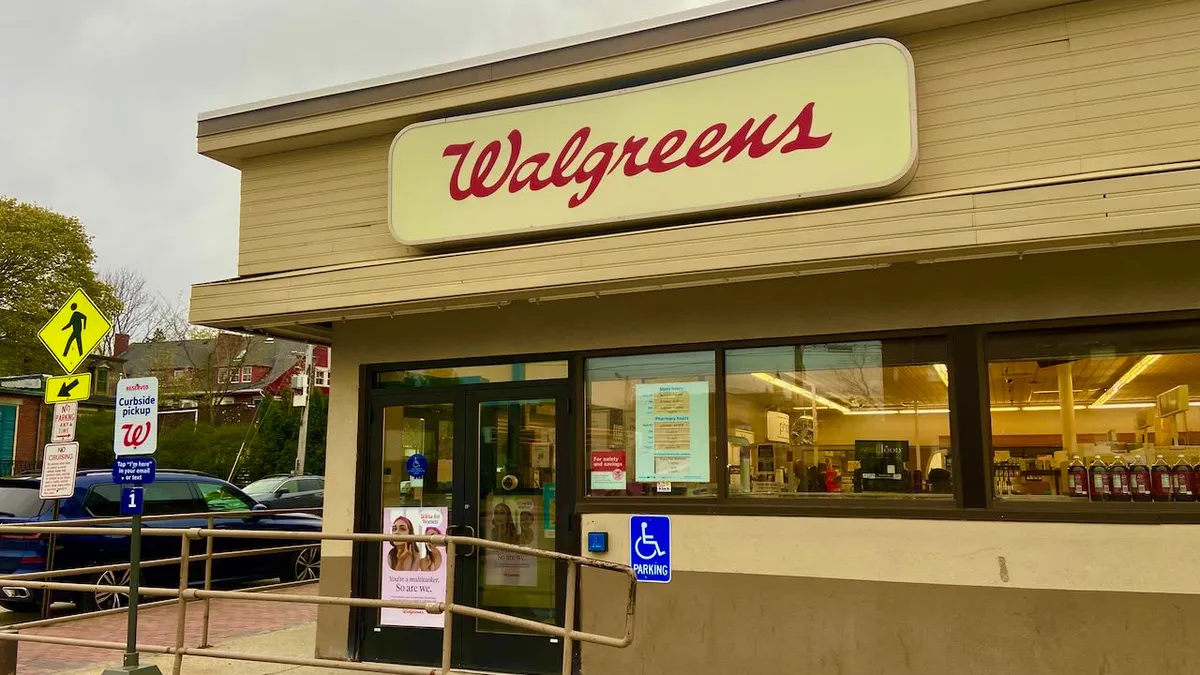Dive Brief:
-
Declines in Walgreens’ front-of-store retail sales continued in Q3, falling 5.3% year over year, due largely to store closures and lower comps. The drugstore retailer last year announced it would shutter 1,200 U.S. stores over three years.
-
Weak sales in grocery and household, health and wellness, and beauty drove store comps down 2.4%. The international and U.S. healthcare segments fared better, helping drive a 7.2% overall Q3 sales increase to $39 billion.
-
The drugstore retailer swung into the red with a net loss of $175 million, a decrease of $519 million compared to last year’s $344 million in net earnings.
Dive Insight:
Any sense of Walgreens’ prospects is getting cloudier as the retailer prepares to be acquired by private equity firm Sycamore Partners. The $10 billion deal — more than double that once debt and future payouts are factored in — is expected to close soon. As a result, the company has withdrawn its guidance and did not hold a Q3 conference call.
“We remain focused on our turnaround plan, which will require time, disciplined focus and a balanced approach to manage future cash needs with investments necessary to navigate an evolving pharmacy and retail environment,” CEO Tim Wentworth said in a statement.
Its troubles aren’t entirely outside its control, however. The company tussled in court with the Department of Justice over allegations that it filled millions of prescriptions for controlled substances without verifying their medical purpose or validity, settling for $350 million this spring. Similar claims helped land rival Rite Aid in bankruptcy nearly two years ago. Rite Aid, which Walgreens attempted to acquire several years ago, is back in bankruptcy court eight months after exiting it. Rite Aid blamed its retail store operations for its struggles, particularly its relationships with vendors, though analysts said its debt load was a major factor.
For the last nine months, Walgreens lists $429 million in short-term debt and nearly $7 billion in long-term debt, according to its press release Thursday. That is likely to rise, according to S&P Global Ratings analysts Matthew Todd and Declan Gargan. In March, following the announcement of the go-private deal, the analysts said they are monitoring Walgreens’ credit profile, citing “negative implications.”
“We think Sycamore, similar to other private equity sponsors, is incentivized to increase leverage to maximize equity returns in a finite holding period,” they said.
















